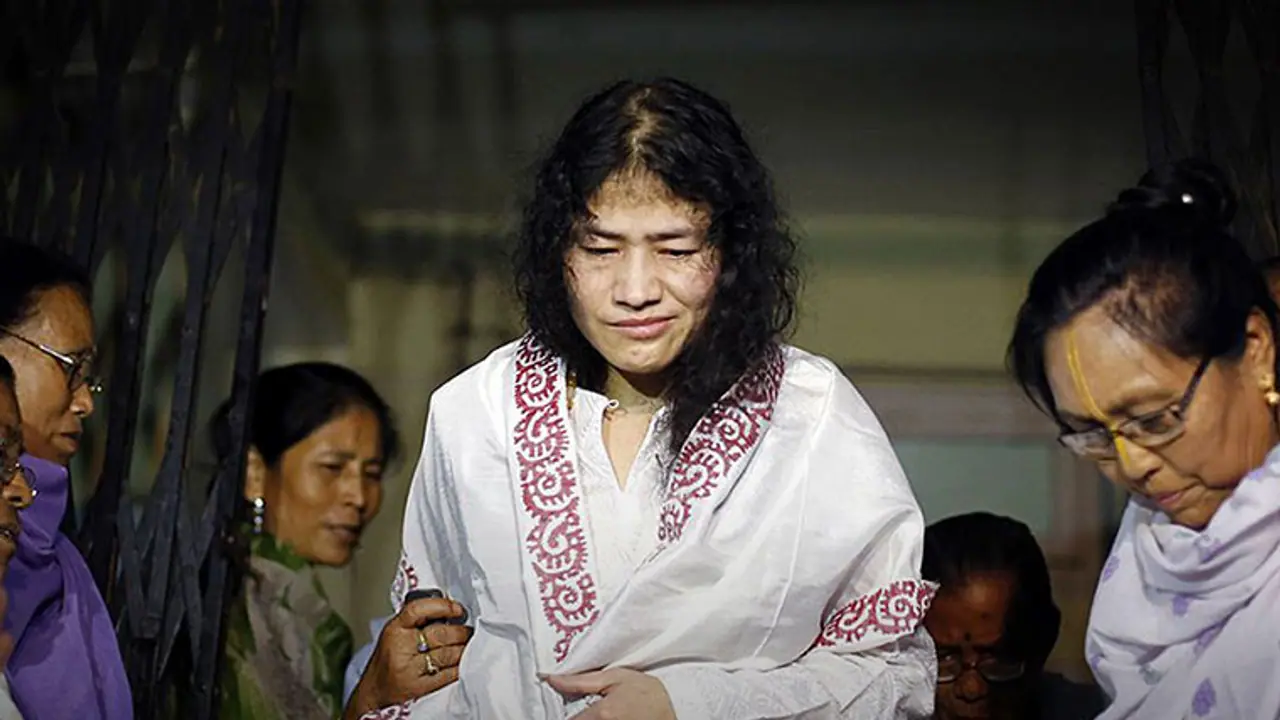
Life as she knew it changed when 44-year-old Manipuri resident Irom Chanu Sharmila witnessed a horrifying incident in 2000 that left her wounded for 16 years.
On November 2, 2000, 10 people standing at a bus stop in Malom were brutally killed in an indiscriminate firing by the 8th Assam Rifles personnel. As many as 42 people were dragged out of their homes by the paramilitary forces and were beaten black and blue without any valid charges.
Irom who was 28-years old then, was a volunteer at the Human Rights Alert which helped the victims of violence, compiling cases and taking part in protests and peace marches. She, on a bicycle, head straight to the crime scene as soon as she heard about the incident.
It was a Thursday, Irom was observing a fast, a custom which was followed by many Hindu Manipuri women. The news of the brutal attack left her shaken and since then she never ate a morsel of food.
She, in a TV interview, revealed that the last meal she ate was two boxes of sweets which were bought from a local sweet shop that day.
Her sole demand in the last 16 years has been the removal of Armed Forces (Special Powers) Act, which in her opinion, gave the army too much power with no accountability.
Setting aside her dream to be a doctor, Irom dedicated her life to become a civil rights activist.
Her family remembers her as a shy child who spent hours in her room painting and reading books. Youngest among her siblings, Irom usually kept to herself.
Irom's father Nanda was an attendant at the state veterinary department and was known to the natives of Porompat as Dr Nanda who took care of their ailing animals. In an interview, the activist said that she believes it was her father, who inspired her to be compassionate.
Irom stepped into her teens without being affected much by the militancy, however, she remembers a particular incident that changed the route of her life.
One day, while returning from a friend's house, a rickshaw-wallah, who was a young boy, was beaten up by soldiers and was left severely injured on the road.
"I was so shocked. I have never forgotten that incident,’’ said Irom to The Indian Express.
The incident left a deep gnash in her memory but strengthened young Irom's resolve to fight against police brutality in her hometown.
She enrolled in a six-month journalism course and even learned stenography. Later, she began attending seminars and workshops on women's rights and conflicts in Manipur. She also wrote for a local paper Hueiyen Lanpao.
Even after 16 years, as she broke her fast, her demand still remained the same - repealing AFSPA. But to make that a reality, she plans to contest the elections.
Known by several names such as "Iron Lady" or "Mengoubi" (the fair one), Irom Sharmila - hailed as the "world's longest hunger striker" - is in all sense an unlikely hero.
